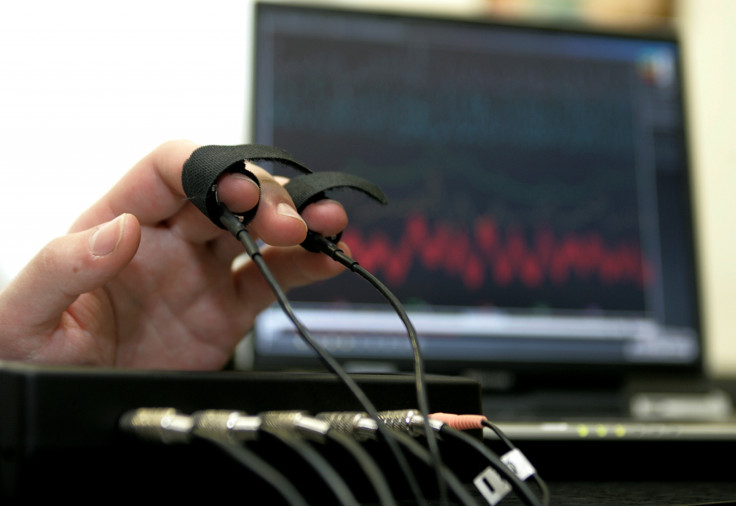Police and intelligence agencies may scrap polygraph for improved lie detector test

Global authorities may scrap the popular polygraph test after British and Dutch researchers have allegedly found a more accurate lie detector.
The polygraph test which involves hooking up people to a machine which reads the heart rate, facial tics and slight body movements, has helped convict criminals and root out spies for over a century.
However, scientists have revealed that a new method has been developed to monitor full body motions and therefore is a more accurate way of assessing the subject's guilt.
The new method is tipped to involve hooking up a subject to an all-body suit, costing £30,000, which has 17 sensors that register movement up to 120 times per second in three dimensions for 23 joints.
"Decades of deception research show that the interviewer will tell truth from lies only slightly better than random, about 55 out of 100," said Ross Anderson, professor of security engineering at Cambridge University.
"The polygraph has been around since the 1920s and by measuring physiological stress induced by anxiety you can get to 60. However, it can easily be abused as an interrogation prop and many people are anxious anyway facing a polygraph on which their job or liberty depends."
"The takeaway message is that guilty people fidget more and we can measure this robustly."
The research paper, written by Dr Sophie van der Zee, of Cambridge University, Professor Ronald Poppe of Utrecht university, Professor Paul Taylor of Lancaster university, and Anderson, will be unveiled at an international conference on system sciences opening at Kauai, Hawaii.
The polygraph lie detector test has become famous due to its depiction in movies and TV shows.
US authorities FBI and CIA widely use the technique, but the method is less popular in Europe due to criticism that the test is not reliable.
In 1998, the US supreme court ruled that there was no consensus that the polygraph was reliable, and in 2003 the US National Academy of Scientists backed the motion.
© Copyright IBTimes 2025. All rights reserved.






















